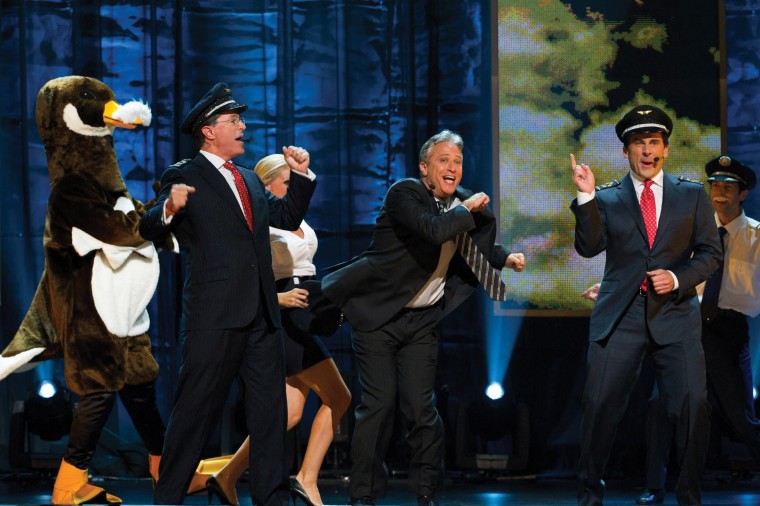Political comedy provides opportunity for honesty
We all read the news, sure. Scanning headlines, only stopping to read full articles if they sound interesting or familiar. But after a long day of school and work, nothing sounds less desirable than watching the news to hear about natural disasters, wars or celebrities.
We are good people, though. We want to be informed; we just do not want to curl up and cry out of frustration with our world. So we turn to comedy. We learn about the world through the television shows we watch. From “The Daily Show” and “The Colbert Report” to David Letterman’s Top Ten List and Saturday Night Live’s Weekend Update, we like to laugh while being informed. The real news gives us a few unsatisfying details over and over again. Fake news shows give us the same details with a punch line and analysis.
Increasingly, comedians are stepping up to fill the role of the news. We look to these political satirists to not only give us the reported details, but also show us from their knowledge and experience where to call foul. This relationship has wider effects than simply education and laughs; it gives both political power. Because we trust their analysis and more and more are turning to them than the real news, comedians are rapidly becoming a common face in politics.
Stephen Colbert is allowed to speak before a House of Representatives committee; campaigning politicians are sure to make their rounds onto “The Daily Show”; comedian Kinky Friedman even ran for governor of our great state. We appreciate comedians because it is common knowledge that they are playing a character; they do not pretend or believe they are actually this facade. And yet, their underlying message still manages to be honest and resonate with the audience. Conversely, major news networks are well-known for their specific bias while claiming to present the facts as they are.
Therefore, we watch comedic shows and specials, we attend the rallies and we give comedians a large audience. Politicians are starting to notice this power. They are realizing that we no longer trust them or the news, and instead look to the guidance of these comedians. They are realizing that they must get on board, or risk not being elected. So they agree to appear on SNL, like Gov. David Paterson, regardless of how much they have been ridiculed. They go on “The Tonight Show,” allowing themselves to be made fun of like former Alaska Gov. Sarah Palin.
Comedians do not force politicians to do their bidding. We give comedians their power by watching their shows. At the end of the day, they are meeting our demands for truth with a dollop of humor. While politicians have their backing of loyal groupies, they are not winning any hearts and minds via the usual venues during a campaign. Appearing on a comedy show is the new kissing babies. Why? Because that is what we want. We want to see them relax and open up. Plus, we know they will be held accountable for screwing up by the host.
Washington, politicians and the media all recognize the power of political satirists. Obama endorsed The Daily Show’s rally. Rick Sanchez was fired from CNN for making many insensitive, racist and wrong comments, but the remarks he made about comedian Jon Stewart received far more attention. HBO satirist Bill Maher is single-handedly calling to question the legitimacy of Delaware Republican Senate candidate Christine O’Donnell because he has that kind of power over politics.
We determine what comedians will end up on top, and these comedians go on to influence politics. Politicians go on comedy shows, where these comedians give us an analysis of the politician’s views and actions. Hopefully this means we are not turning in a circle, and instead are progressively spiraling upwards towards honesty and openness in politics. With our remote, we control what views the media aligns with. Even we lazy Americans can make a difference and rock the vote.







